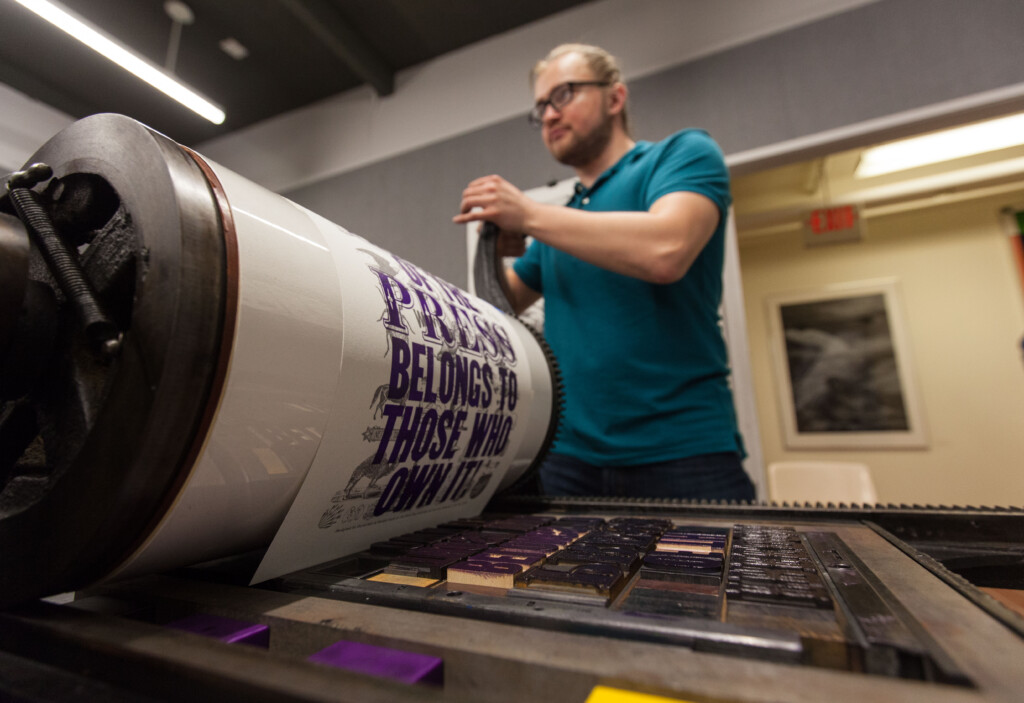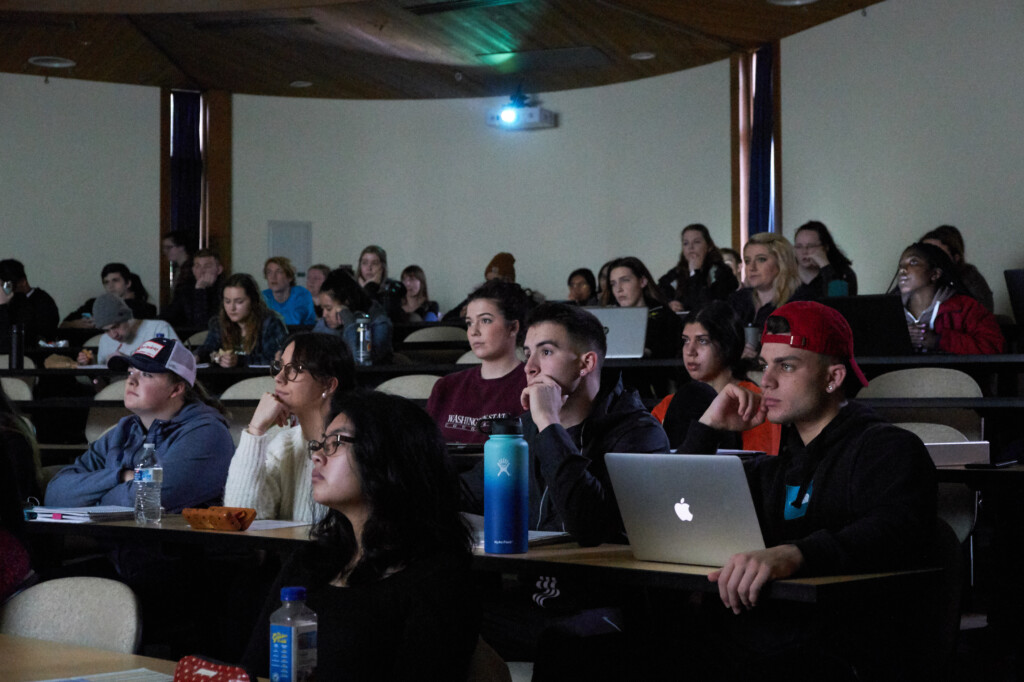Should History Tell a Story?
By Mark Jensen
Originally Published in 1990
It would appear that Louis XIV never said: “L’état, c’est moi.” The researches of modern historians have produced no credible witness attesting that France’s Sun King pronounced this coldly witty laconism. But just try to find a modern history of seventeenth-century France in which it is not mentioned. “If he did not say ‘I am the state,’ it is only because it went without saying,” is one historian’s way of reporting what never occurred. How is it that history persists in individuals who have no claim upon them? Moreover (and more curiously) how is it that we feel it is good to know about this famous, if apocryphal, sentence?
History will judge. . . How often history, to whose powers of calm reflection contemporaries blithely relegate the responsibility of deciding this or that question of momentous import, dissolves under close scrutiny into a confused welter of angrily conflicting testimonies! Now, this is clearly an unsatisfactory situation. Since the rise of modern science, there have been some notable attempts to overcome the raucous uncertainties of the tribunal of history. In the last quarter of the seventeenth century, for example, the Benedictine monk Jean Mabillon published De re diplomatica (1681), a textbook on the principles of verification whereby charters, treaties, and other official documents are to be authenticated. But the effort to found a science of history on such a basis was criticized by the philosophically minded. Fénelon, for example, thought the historian should “observe the changes in the nation as a whole” rather than “relate particular facts.” Inspired by such critiques, the reform-minded eighteenth century sought a more useful kind of history.
In the nineteenth century the discipline of history raised the scientific ideal once more, reconstituting itself in an age of positivism as the attempt to divorce oneself from the passions of the present and to tell the story of the past objectively. In Ranke’s famous phrase, history should be recounted as it really was: “wie es eigentlich gewesen.” For Ranke and for others, the painstaking discovery, examination, and criticism of archival documents was like a laboratory method whereby the historian’s labor could transmute the showy dross of a momentous tale into the pure gold of historical truth. Fustel de Coulanges’s expression of this ideal was typical: “L”histroire n’est pas un art. Elle es une science pure.”

Such a formulation may strike us as naïve, but modern historiography has been marked by attempts to import into history the prestige of this or that field of scientific or pseudo-scientific endeavor. Sociology, economics, psychoanalysis, anthropology and linguistics are only some of the disciplines that have been exploited in this way. (The philosophical justification for Pacific Lutheran University’s assignment of the Department of History to the Division of Social Sciences derives, ultimately, from some such view of the historian’s labor.)
There has always existed a certain skepticism about history’s claims to offer positive knowledge of the past. Such skepticism has usually been founded upon a deep-seated anti-intellectualism or irrationalism, and reflects the suspicion that history is not philosophy teaching by examples, but “an agreed upon fable” (Napoleon), “merely gossip” (Oscar Wilde), or, more provocatively, “a little cesspool in which the mind of man likes to wallow” (Francis Ponge). Philosophical critiques of history’s pretensions have been fewer in number, perhaps because the desire for a usable past is so powerful, and because the uselessness of an unknowable past is so plain. Did not Polybius write in the preface to his universal history that “the knowledge of the past events is the sovereign corrective of human nature”? If this is wrong, should we not feel as helpless as a victim of severe memory loss?
Over the last twenty-five years a radical challenge to the notion of historical knowledge has emerged. A body of work has grown up around the problem of the relation of historical understanding to narrative, conceived as a literary form. In 1973, Hayden White published Metahistory: The Historical Imagination in Nineteenth-Century Europe, an extended attempt to analyze how what we may call the literary imagination influences the shaping of traditional historical narrative.

White’s analysis of historians and philosophers of the nineteenth century argues that their attempts to attain historical truth have been influenced by strategies of “emplotment” (structures of narrative), ideology (political beliefs), patterns of formal argument (founded upon various epistemological commitments), and styles of “tropic configuration” (different ways of giving order to our experience of the world at a preconceptual level). This intricate and difficult volume has stimulated more than defined further work in this field. A number of recently founded journals now specialize in addressing issues raised by the interpenetration of history and narrative, including New Literary History, Representations, Clio, and History and Theory. A “narrativist philosophy of history” (the phrase is F. B. Ankersmit’s) has thus constituted itself in the last quarter-century as a new school of interpretation in the field of philosophy of history.
The situation has reached a point at which the intellectual historian Leonard Krieger, in his recent book Time’s Reasons: Philosophies of History Old and New (1989), speaks of a contemporary “crisis” of faith in the notion of historical truth. He writes:
The most potent contemporary influence on the discipline of history . . . is the challenge to the very substance of the historical approach to life that has been mounted by antithetical agents of the general culture. What is new and especially lethal in the current rejection of history as such is that it is mounted not in the name of science —the older kind of rejection which historians have become quite adept at evading— but in the name of the very life and vitality which historians have prided themselves on recreating.
The books and journals to which I have just referred bristle with references to the latest in literary theory, and often depend upon recent structuralist and poststructuralist philosophies which posit a radical split between language and the world, to find the contemporary philosophical critique of history’s pretensions to truth anticipated in the work of a French Romantic author who wrote a century and a half earlier. In the late 1820s, Alfred de Vigney wrote Cinq-Mars, a historical novel set in the seventeenth century about an unsuccessful plot against the Cardinal Richelieu. The novel was well received by the public, but critics raised a variety of objections to the distortions the historical record underwent in Vigny’s hands. The philosophically minded Vigney felt the need to justify his treatment of historical materials, but faced a problem: if historians were allowed to define the terms of the indictment, there was no doubt that he would be found guilty on all counts.
Deciding that the best defense is a good offense, Vigny chose to turn the tables on the historians. In an engaging preface entitled “Reflexions sur la vérité dans l’art,” he rejected the notion that the work of art ought to be a mere representation or reflection of the real world, and then showed to what extent a narrative history was, in essence, a work of art. For Vigny, this was principally due to a radical insufficiency in the historical record itself.
What is the good of the memory of true facts, if not to serve as examples of good or of evil? But the examples which the slow succession of events presents are sparse and incomplete; they lack a tangible and visible connection that might lead to a single indisputable moral conclusion; the acts of the human race upon the stage of the world no doubt form a whole, but the meaning of the vast tragedy played there will only be visible to the eye of God until its dénouement reveals it, perhaps, to the last man. All philosophies have exhausted themselves trying to explain it, ceaselessly rolling their boulders, which never reach their goal but instead fall back upon them, so that each philosophy raises its frail edifice on the ruin of the others and sees it collapse in turn. It seems to me that man, after having satisfied this first curiosity about facts, wanted something more complete, some grouping, some reduction of this vast chain of events, which his sight could not encompass, to something of manageable proportions which he could use.
With the superb confidence of a young Romantic author in the first flush of what promised to be a glorious career, Vigny declared: “In order to finish dissipating on this point the scruples of several timorous literary consciences that have been strangely frightened by the imagination’s daring in making free with the gravest characters who ever lived, I shall be so bold as to propose this: not in its entirety, I should not venture to go so far, but in many of its pages, pages which are perhaps not its least beautiful ones, history is a novel whose author is the people.”
To illustrate his point, Vigney adduces three examples of historical events which bear the stamp of the popular imagination, all of them drawn from the tumultuous period of the Revolution and the Empire: the burning of Moscow, the mot de Cambronne at Waterloo, and the injunction to the condemned Louis XVI: “Fils de saint Louis, montez au ciel!”

Count Rostopchin, as governor of Moscow, was supposed to have set fire to Moscow in 1812 rather than allow Napoleon to enjoy possession of the Russian capital; General Cambronee was said to have riposted “Merde!” to English demands for surrender at Waterloo in 1815; and the abbe Edgeworth was alleged to have comforted Louis XVI by invoking the notion of his martyrdom as he stepped up to the guillotine in 1793. In each case, the supposed authors of the memorable sayings or events denied having been responsible for them. But their denials have been in vain.
As if for pleasure and to mock posterity, the voice of the people invents sublime sayings in order to attribute them to those who, being still alive and embarrassed at all the fuss, excuse themselves as best they can as not being worthy of so much glory and renown. But their declarations are not accepted, however much they shout, write, publish, and sign them: their words are sculpted in bronze, and the poor fellows remain historic and sublime in spite of themselves.
This claim is borne out by examination of the treatment of the first two events in historical literature since Vigny: there are indeed few accounts of the Russian campaign or the battle of Waterloo which neglect to mention them.
For Vigny, the conclusion is clear: historians should not judge harshly the artist who also undertakes to resculpt the stone of history. The Romantic notion of the artist’s quasi-divine inspiration and the period’s consecration of the artist as an independent voice of truth is largely responsible for the self-assurance with which Vigny grants the artist the role of arbiter of historical truth.
The rampant propaganda of our age has soured us to such teachings. We have passed from an almost universal belief in progress to an age of intellectual suspicion, in which the debunking of the ideals and aspirations of the past is a characteristic form of intellectual endeavor. In such a climate the assertion of the artist’s right to tamper with the historical truth is most dubious. Yet it continues to come up almost every time a work of art undertakes to portray historical events. Discussions like Richard Bernstein’s recent article in the New York Times asking “Can Movies Teach History?” or James M. McPherson’s review of the film Glory in the New Republic raise few important issues that were not debated apropos of Walter Scott’s historical novels. Vigny’s excessively bold views were never accepted even in the heyday of Romanticism. Balzac mocked Vigny’s pronouncement by writing in Les Deux Amis that it amounted to the claim that “There is a truth that is false and a falsehood that is true.”

In its critique of history’s pretensions to objective truth, however, Vigny’s critique is still important. It addresses the unresolved tension —some would say unresolvable antinomy— between an Enlightenment tradition that seeks objective truth in history, and a philosophical tradition dedicated to appreciating the uniqueness of different societies in terms which cannot be reduced to abstract laws or principles. And it is Vigny’s identification of narrative as response to a fundamental human need that makes his piece seem so modern today. The “Reflexions sur la verité dans l’art” suggest that twentieth-century poststructuralism and the study of narrative have roots in Romanticism —in particular, in what Morse Peckham has termed “negative romanticism.” Vigny thus deserves to be considered a forerunner of the narrativist philosophy of history which has come into being in recent years.
Though expressed in terms foreign to the contemporary debate, Vigny’s preface anticipated some of its insights, earning denunciation by the intellectual forebears of those historians who in our day dismiss the narrativist philosophy of history as inspired by dubious ideas and underlying philosophical biases.
What such critics fear in admitting the claims of the narrativists is the loss of a standard of objectivity and the reign of arbitrariness and subjectivity. But a common theme of one group of narrativists is that there is a more than arbitrary relation between the narratives history employs to recount the past and the “real world” which narratives describe. Contemporary philosophers like Alasdair MacIntyre (After Virtue) and David Carr (Time, Narrative and History) consider narration, or story-telling, to be inseparable from human experience. According to them, there is less to be feared from self-consciousness about the narration of history than might be at first expected. But that is, as they say, another story.


